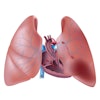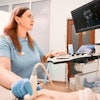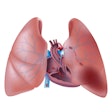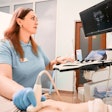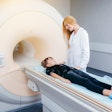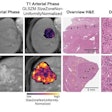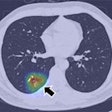Dear AuntMinnie Member,
Do women deliberately avoid careers as radiologists? Researchers posed the provocative question this week at the American Roentgen Ray Society (ARRS) meeting in Washington, DC.
As reported by features editor Wayne Forrest, the Canadian study team polled nearly 1,000 female medical students in the country on their perceptions toward careers as radiologists. They found a number of reasons behind why women didn't pick medical imaging -- reasons that in some cases differed from those reported by men.
For example, nearly twice as many women as men said they were turned off by radiology's heavy reliance on physics knowledge. On the positive side, more women than men who were attracted to radiology said the specialty's flexibility was an attraction. Read more by clicking here, or visit our Residents Digital Community at residents.auntminnie.com.
Low-dose CT
In other news from ARRS 2013, researchers from Massachusetts General Hospital (MGH) yesterday reported some disconcerting results with respect to low-dose CT scans, which many imaging facilities are adopting in an effort to reduce CT radiation dose.
MGH researchers found that measurements of structures such as lung nodules and lymph nodes as generated by 3D software can vary significantly if they are based on data from low-dose CT scans, compared with studies generated with normal-dose studies. This could have an impact on efforts to direct and follow up patient treatment.
Read more about the research by clicking here, as well as this study on using CT and serum data to predict survival in melanoma patients, or visit our CT Digital Community at ct.auntminnie.com.
Postmortem MRI
Postmortem imaging is gaining traction as an alternative to conventional autopsy, for a variety of reasons. In fact, a new study by Swiss researchers indicates that 3-tesla MRI can be a valuable tool for assessing cases of sudden cardiac death.
The group found that MRI scans can reveal pathologies that might not be evident in conventional autopsies. Learn more about the technique by clicking here.
Also, learn about research from Portugal that examined the reasons why MRI exams had to be repeated. The most common causes? Patient movement and incorrect technical parameters. Learn more by clicking here, or visit the community at mri.auntminnie.com.

